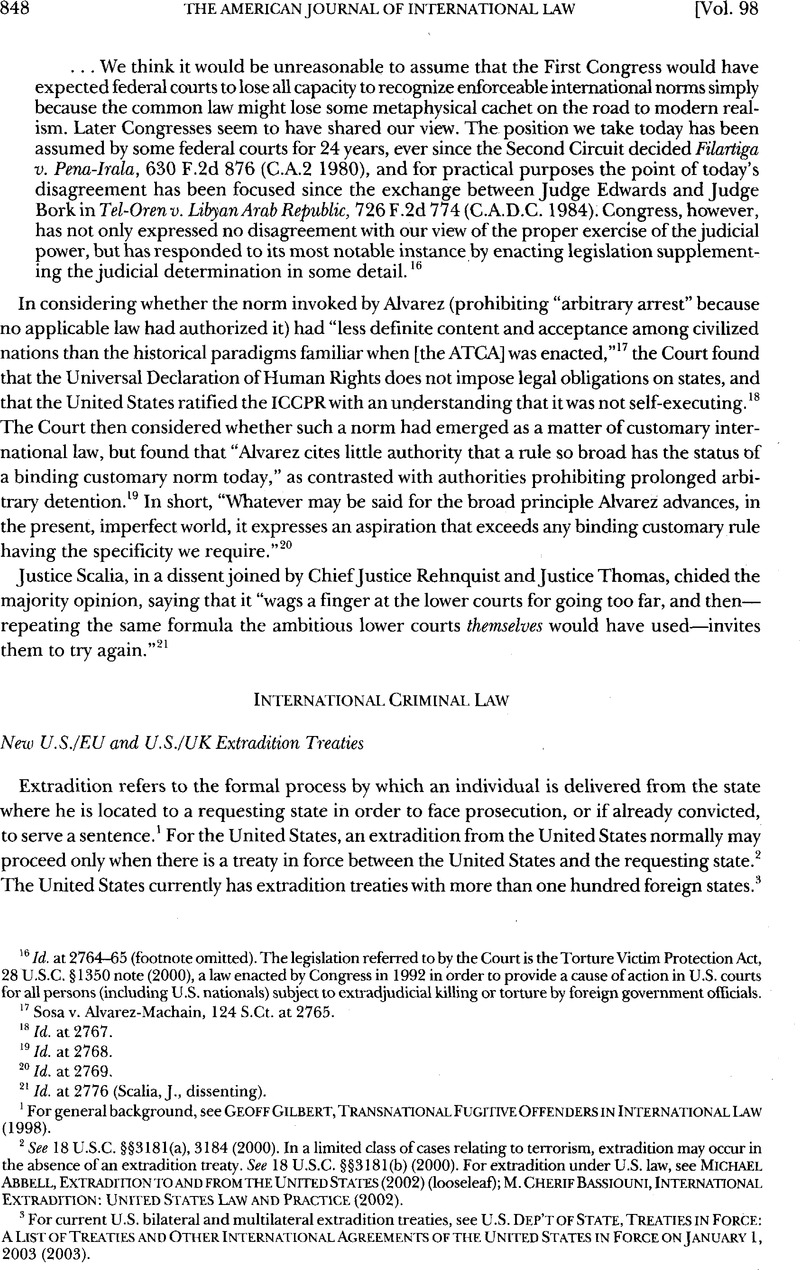Published online by Cambridge University Press: 10 March 2017

1 For general background, see Gilbert, Geoff, Transnational Fugitive Offenders In International Law (1998)Google Scholar.
2 See 18 U.S.C. §§3181(a), 3184 (2000). In a limited class of cases relating to terrorism, extradition may occur in the absence of an extradition treaty. See 18 U.S.C. §§3181(b) (2000). For extradition under U.S. law, see Abbell, Michael, Extradition to and From the United States (2002)Google Scholar (looseleaf); Bassiouni, M. Cherif , International Extradition: United States Law and Practice (2002)Google Scholar.
3 For current U.S. bilateral and multilateral extradition treaties, see U.S. Dep’t of State, Treaties In Force: A List of Treaties and Other International Agreements of The United States In Force on January 1, 2003 (2003).
4 Agreement on Extradition, June 25, 2003, U.S.–EU, 2003 O.J. (L 181) 27.
5 Id.,Art. 10.
6 Id., Art. 4(1).
7 See Extradition Treaty, June 8, 1972, U.S.–UK, Arts. I, III, 28 UST 227, 229, 30 UNTS 167, 168–69. This Treaty was supplemented in 1985. See Supplementary Treaty, June 25, 1985, U.S.–UK, TIAS 12050, 1556 UNTS 369.
8 Extradition Treaty, Mar. 31, 2003 Google Scholar, U.S.–UK, Arts. 1, 2(1), S. Treaty Doc. No. 108–23, at 1, 4 (2003) [hereinafter 2003 Extradition Treaty].
9 Extradition Treaty with Great Britain and Northern Ireland, S. Treaty Doc. No. 108–23, at V (2003)Google Scholar (secretary of state’s letter of submittal to the president).
10 2003 Extradition Treaty, supra note 8, Art. 4(2)(a). There are presently numerous multilateral conventions containing a “prosecute or surrender” obligation addressing terrorist acts.
11 Id., Art. 7. Similar formulations may be seen in recent U.S. extradition treaties with Argentina, France, India, Republic of Korea, Peru, and Poland.
12 Id., Art. 18(2) (emphasis added).
13 S. Treaty Doc. NO. 108–23, at IX–X (secretary of state’s letter of submittal to the president). Article 98(2) of the Statute of the International Criminal Court, UN Doc. A/CONF. 183/90 (1998)Google Scholar, provides that the ICC may not proceed with a request for surrender that “would require the requested State to act inconsistently with its obligations under international agreements pursuant to which the consent of a sending State is required to surrender a person of that State to the Court.”